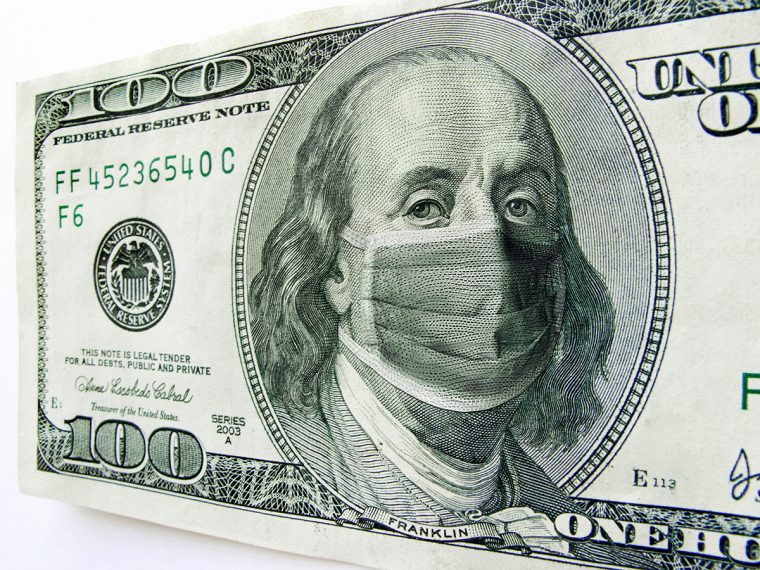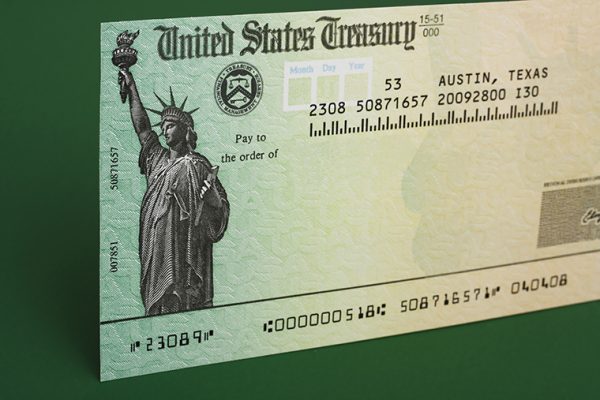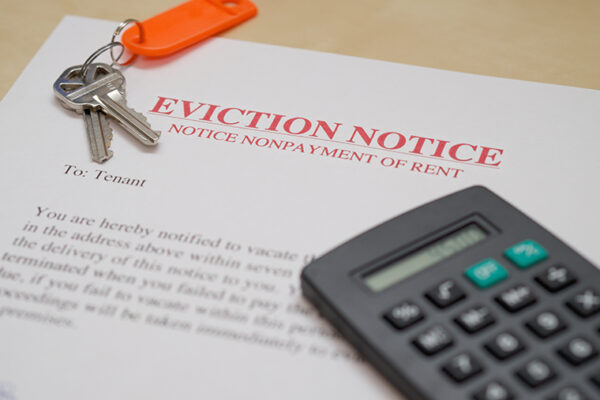The $2 trillion plan to prop up a pandemic-reeling United States, amid the news that there were 3.3 million unemployment claims lodged in the previous week, is expected to pass the House on March 27.
Is it a Band-Aid or sufficient to heal what ails America’s economy?
“We do not have this (COVID-19 outbreak) under control, and until we do, even $2 trillion may not be a big enough bailout,” said Anne Marie Knott, the Robert and Barbara Frick Professor of Business at Washington University in St. Louis’ Olin Business School. She added that the package would prove more helpful if, similar to venture capital, it were allocated on an incremental basis.
An array of Washington University experts offer perspectives on the plan.
‘Ridiculous for this to be a stimulus bill’

“China’s economy is slated to slow from 6.1% growth to 2.4% growth, rather than contract, so the estimate of a 24% contraction in the economy seems extreme — unless we don’t take containment seriously. If we can contain it, $2 trillion seems excessive — it’s 10% of GDP and greater than revenue from income tax last year. Having said that, if we are asking businesses to close, then we need to compensate them and their employees for the closure.
“But we should behave like venture capitalists and authorize money weekly or bi-weekly, rather than committing to a package for a program whose duration and severity is completely unknown — but forecastable if we behave like China and South Korea.
“It is ridiculous for this to be a stimulus bill. You can’t stimulate an economy when there is no way for people to spend money. As Phil Dybvig (the Boatmen’s Bancshares Professor of Banking and Finance) says, this is a recipe for inflation. Accordingly, we shouldn’t be writing checks to everyone, we should only be writing checks to people who are furloughed due to business closures.”
— Anne Marie Knott, the Robert and Barbara Frick Professor of Business, Olin Business School
Big business relief ‘does not go far enough for fast recovery’

“The $75 billion industry-specific loans included in the stimulus package is welcome news for the intended industries: hotels, restaurants and airlines, as is the $17 billion for Boeing and defense-related companies. The loans will allow companies in those industries to meet their short-term obligations and cash flow needs and prevent them from aggressively cutting capacity and laying off employees. Not only will it help the industries through the next few months of nearly stopped economy, it might also help ramp up resources in the early part of the recovery when the virus spread slows and people return to work. Companies in these industries will need working capital to bring up their capacity to support normal demand.
“However, I worry that the package does not go far enough to drive a fast recovery. While the stimulus package seems to reflect, always on the lower side, estimated impact in any one of the intended-to-protect sectors, it fails to understand the disaster propagation across sectors and the corporate-inertia behavior in slowing down or ramping up in the face of unprecedented uncertainty. When demand for airlines services suddenly dropped 60%-80%, the airlines were not able to immediately adjust capacity (i.e. number of flights). They are still carrying more aircraft contracts, employees and other supporting contract services than what will be needed to meet the projected demand for the next six to nine months, or even a year.
“Inertia in decisions is common in situations that are hard to forecast and requires high working capital needs not supported by revenue streams. This is where the stimulus plan loans will be most helpful. As airlines exhibit inertia in adjusting down capacity, they will exhibit similar inertia in slowly adjusting their capacity up. Their future planning will always be more pessimistic in their plans for planes and other supporting supply chain services. This will affect all suppliers to the airline industry, but in particular our major plane manufacturer, Boeing. It will be affected not only in terms of delayed or canceled plane purchases this year, but less aggressive plane purchases in the next four to five years. Future corporate resilience on the part of the airlines will require not forgetting the ‘black swan’ event you experienced vividly.
“Finally, Boeing’s market value has already been hit hard by the pandemic crisis. On the commercial plane side, 737 MAX orders are already in question, and there will be canceled orders and fewer future orders by a hammered airline industry. The defense side will inevitably be hit, too, as the government puts its emergency resources into public health, health care management, fighting market stagnation and unemployment and might be less inclined to accelerate defense programs or purchases of the current weapon systems. In a serious interconnected supplier system in the aerospace and defense industries, the pandemic disaster has just started and its magnitude might not be fully accounted in this cash flow maintenance and short-term continuity risk management package.”
— Panos Kouvelis, director of the Boeing Center for Supply Chain Innovation, Olin Business School
Unemployment a benefit?

“After doing whatever can be done to improve the medical infrastructure needed to treat COVID-19, the most important item on the economic policy agenda is greatly expanded unemployment benefits. Missouri provides a meager 50% replacement of wages for unemployed workers up to a paltry $320 per week. That means the most anyone gets to offset the economic cost of unemployment would be half of what a worker paid $32,000 a year takes home. Some states are even less generous; none provide adequate wage replacement for a crisis of this magnitude.
“The legislation now working its way through the Congress looks like it will provide a significant boost to unemployment benefits in coming months; this is welcome, but it is probably not enough — although details remain unclear at this time. Adequate unemployment compensation is much more important than sending checks to every American household and would be much less expensive. Workers unemployed, obviously through no fault of their own, will be severely challenged to pay rent, service debt and purchase basic needs; they certainly will have no budget for discretionary expenditure. This kind of financial difficulty will magnify output losses during the crisis and greatly hinder recovery in its aftermath as households suffering unemployment struggle to regain their financial footing. In contrast, for households that keep their labor income during the crisis, a check from the government may have little immediate effect because, due to social distancing, there are few channels for discretionary spending available. Payments to all households may help speed recovery a little bit after social distancing eases. Although the temporary structure of these payments will reduce their effect on household spending.
“Let’s take care of the workers most affected by this crisis.”
Unemployment for gig, contract workers

“The most interesting part of this bill for me is that it offers 26 weeks of unemployment payments to self-employed workers and contract workers — for example, Uber drivers — through a new program called Pandemic Unemployment Insurance. Previously, unemployment payments were only available to workers who received wages that are reported on a W-2. It is not entirely clear yet how the government will determine which self-employed workers and contract workers are eligible for these payments.
“I am very interested to see if unemployment assistance for self-employed workers and contract workers becomes a permanent feature of our social safety net. There has been a growing discussion about how the emerging class of gig economy workers, like Uber drivers, should be viewed from a legal perspective.
“Are they employees? Contractors? Uber has previously fought hard to keep their drivers classified as contractors, as this allows Uber to avoid paying certain benefits. But Uber lobbied hard for this new Pandemic Unemployment Assistance program for their drivers. Now that the government is using public funds to support Uber drivers (and hence making it more attractive to be an Uber driver now and in the future), it seems reasonable to predict that the government might ask Uber to, in turn, do more for its drivers. Especially if unemployment insurance for gig workers becomes a permanent feature of our social safety net.”
—Seth Carnahan, associate professor of strategy, Olin Business School
Consumer checks: save or spend?

“Consumers with stable jobs will likely treat the direct payments from this bill somewhat similarly to how they treat tax refunds. Consumers frequently spend a chunk of tax refunds, but, notably, they actually save a higher percentage of their tax refunds than they do of their standard income. In this time of uncertainty, these consumers are likely to save an even greater chunk of the direct payments from this bill than they do of typical tax refunds.
“But of course, consumers without stable employment will use these direct payments as a financial lifeline. They will likely need to spend the funds to cover the costs of necessities.”
— Cynthia Cryder, associate professor of marketing, Olin Business School
Households and housing fallbacks

“Any government stimulus is trying to achieve one or more of the following objectives: a) encourage immediate household consumption and/or business investment; b) avoid household default on fixed obligations such as monthly mortgage payments and rents; c) avoid or minimize layoffs; and d) minimize business defaults on debt and consequent disruptions.
“While encouraging consumption and investment will give an immediate boost to the economy, avoiding both household and business defaults will prevent the crisis from becoming a prolonged downturn. In my opinion, the stimulus is likely to achieve some of the above objectives.
“I don’t think any amount of stimulus payment will make households spend more as long as the health crisis is ongoing. The same goes for business investment. On the other hand, the stimulus payments to households will enable them to not fall behind on payment of fixed obligations and hence aid in quick recovery once the health crisis passes. The extension of unemployment benefits will achieve the same objective.
“Based on the experience in Germany during the great recession, the most effective provision is for the government to subsidize some part of employee wages. Stipulating conditions to business aid such as no layoffs may not work as that will only make firms reluctant to avail of government aid.”
— Radha Gopalan, professor of finance and academic director of the IIT-Bombay-Washington University Executive MBA Program, Olin Business School
Suspend rent, mortgage, loan payments?

“I see a few possible outcomes based on the actions proposed:
- Within two weeks, we will start to have tens of thousands of deaths and the attitude towards having a true national shelter-in-place program will grow, leading to it being implemented. If this is implemented for an appropriate amount of time — a few weeks — that could lead to new economic activity by this summer. In such a case, I think that the $2 trillion package should work well. A stoppage of the economy until the early summer is what this package is built for. This is the optimistic path.
- The second outcome is that the spread of the disease in rural areas of the country is a bit slower, and the New York, Washington state, California, Illinois and other current breakouts get controlled by the current shelter-in-place commands. People try to get going on their economic business starting in late April or May because deaths decline. …
“Thus, these pieces suggest the following key points about the $2 trillion package: It is likely to be a first step, especially since the federal government does not seem willing to implement the type of nationwide shelter-in-place order that would be needed for us to quickly contain the outbreak. The longer this goes on, the harder it will be for companies to keep employing its workforce and the more lost economic value there will be. Are we able to keep spending this type of money every two to three months? I am unsure about that.
“I would propose some other economic steps that I think would be better. I would suspend rent, mortgage and loan payments through the national emergency. By suspending them, I wouldn’t change the amount of money paid back, but effectively the national emergency would become a time when loans and housing assets would temporarily earn a zero rate of return. This has been done in parts of Europe, so it is doable. I do think actions giving households in need of cash is valuable, although people probably need less cash if they did not have to pay their rent or loans, allowing us to stretch out the federal spending to get more bang for the buck. We would also have to help make sure that businesses do not go out of business, but by taking away rent and borrowing costs, that should help a lot of businesses get through their time being shuttered.”
— Raphael Thomadsen, associate professor of marketing, Olin Business School
WashU Response to COVID-19
Visit coronavirus.wustl.edu for the latest information about WashU updates and policies. See all stories related to COVID-19.



